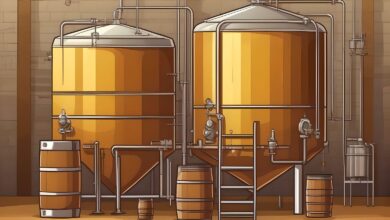
We love our beer ice cold, sure. We are usually less inclined towards non-alcoholic beer, but there are some occasions to partake in this type of brew. According to a recent study, our gut feeling is correct: Ice-cold beer is both a better and a safer option.
According to the paper recently published in the Journal of Food Protection, the recent boom in non- and low-alcoholic craft beer may pose certain health risks.
Traditional alcoholic beer is more or less safe from biological contamination. This very fact was one of the reasons for the popularity of beer since ancient times and, according to some historians, may have contributed to the establishment of the first human settlements by being safe to drink—unlike most water in the vicinity of crowded villages.
Bacteria can’t usually survive in beer because of its alcohol content (after all, alcohol is an excellent disinfectant), bitter acids from hops (these are also responsible for the hoppy taste of beer), general acidity, significant carbon dioxide content (fizziness), low oxygen, and lack of stuff for bacteria to eat. If that was not enough, the beer brewing process also involves steps like boiling that could be better for harmful microorganisms. Certain bacteria still somehow manage to survive even in beers with high alcohol content, especially with poor refrigeration. Still, these cases are comparatively rare (ice cold beer is the safest option all the way, people).
However, according to the researchers, if you remove one of these factors, things start to look less optimistic. The recent increase in the popularity of non-alcoholic beers and beers with low alcohol content may create an environment more susceptible to pathogens.
The scientists studied several common food pathogens and found that low-alcoholic and especially non-alcoholic brews are susceptible to some harmful bacteria, especially if stored at higher temperatures. Ice cold beer—stored at 4°C (39.2°F)—turned out to be less contaminated.
Based on their findings, the authors recommend craft beer brewers be cautious when altering the traditional beer brewing process. They also recommend putting beers with low to no alcohol, high pH, and low carbon dioxide content through pasteurization, sterile filtration, and the addition of preservatives.
We hope that the brewers note these findings and ensure that we can enjoy our ice-cold beer safely, even if it is a non-alcoholic one.




